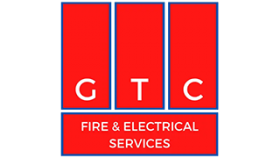Safeguarding Commercial Fire and Electrical Safety Across South England.
JUICE - the Joined-Up Infrastructure Conference & Exhibition
Does the UK’s ongoing torrid political landscape spell trouble for the future of EV growth and much-needed infrastructure projects?
Political uncertainty provided the backdrop to the inaugural JUICE event held at Plexal, East London on 8 November 2019. In fact, when news hit of yet another UK general election taking place before Christmas, the existence of this brand new EV infrastructure event to the conference and exhibition scene hung in the balance.
You see, JUICE - or the Joined-Up Infrastructure Conference & Exhibition – hosted by Public Sector Information and supported by Office of Low Emission Vehicles was always going to have a political slant. Why? Because it is impossible to talk about electric vehicles, take-up figures, related incentives, government investment (whether lacking or not), current legislation, and even the point of ‘green number plates’ on ‘green’ cars without sounding like you are taking part in a party-political broadcast - so what to do in the face of purdah?
Calm down and carry on; and thanks to the EV community – and a number of hugely supportive speakers – the show went on.
Turns out, JUICE is just the start of a sea change. It marks a shift away from the ‘sexier’ side of greenness - the ‘wheels’ - and has turned the conversation to the lack and desperate need for joined-up, cohesive EV infrastructure planning; a considered approach that better supports green transport take-up and instils in drivers a confidence that, even after all these years of EV trends, the sector is failing to retain.
So why has the issue of infrastructure been so woefully neglected? Take London for example. In 2018, Mayor of London Sadiq Khan, created a new taskforce to help increase infrastructure for EVs in London. The EV Taskforce, the first of its kind in the UK, was established to make it easier for Londoners to switch from diesel to electric vehicles with the hopeful result of cleaner air for everyone, and in under two years, Transport for London (TfL) have installed over 180 rapid charge points, which has grown London's network from 24 to over 200 rapid charge points with support from some private sector partners.
Commendable indeed, however, most of these rapid charge points are on land or roads managed by TfL and to encourage businesses, taxi drivers and Londoners to switch to EVs we need a huge expansion in rapid chargers. This is a similar story across the entire country.
In the UK there are only 1,500 rapid chargers, with space to charge 3,400 vehicles and when you consider that the UK needs a six-fold increase in the number of electric vehicle charging points by 2020, to provide adequate infrastructure for green motorists, it’s plain to see that unless we act now, supply will not meet demand.
So what next?
Mayor Khan believes we must work together with the boroughs and private sector and this message was reiterated by the sector’s top experts to the JUICE audience.
Jonathan Murray, Policy & Operations Director of LowCVP, a public-private partnership that exists to accelerate a sustainable shift to lower carbon, cleaner vehicles and fuels, is working hard to deliver recommendations to government and industry via the EV Energy Taskforce because ‘unless we work together, we fail to engage with the EV driver. We need to think about where we will be in 2030 and develop systems that work in real time to gain consumers trust and confidence’.
With this we all agree, but how do we move forward collaboratively?
Quentin Willson, TV presenter and JUICE sponsor ambassador for The Algorithm People suggests using what we already have - Artificial Intelligence – and all the while leveraging the knowledge of private investors to uncover imaginative and creative solutions.
All fine in theory, but why then are some parts of the UK and indeed many other countries excelling at EV infrastructure so much more than others?
In Nottingham, EV drivers benefit from the city’s Go Ultra Low Project. This innovative initiative puts significant investment in rapid charge points specific, explains its senior transport planner Mark Daly, highlighting the fact that other UK cities are falling behind.
The UK’s slow progress was further highlighted by JUICE international guest speaker Christina Bu of the Norwegian EV Association. The Secretary General of the world’s largest EV owner association with 70,000 members, revealed how Norway’s hugely successful EV sector is largely driven by, yes, you guessed it, incentives; crucially, access to bus lanes, 60 per cent company car tax, no annual road tax, financial support schemes and EVs designed for rural use, meaning that everyone in the country is welcome to join the EV community – and remain. These ‘rewards’ for EV users have shifted Norway from simply remaining an ‘early-adopter’ market to a well-established and well-publicised ‘poster child of the EV sector, placing the spotlight firmly on the UK’s failure to make electric vehicle transport accessible and desirable to the masses.
Solar power also featured heavily on the agenda and made for interesting listening. Toddington Harper, CEO of GRIDSERVE spoke with passion of epic solar power projects to feed electric vehicle growth and in turn the infrastructure solutions needed. One such solution - building Electric Forecourts – not what you would expect, but awe-inspiring locations that offered a one-stop-shop for EV users and even house education centres to encourage a future generation of EV drivers.
Infrastructure Strategy Specialist, Jacob Roberts of CENEX agreed, telling JUICE delegates that solar-powered charge points can be used to ease the demand on grid supply.
Arguably this whole debate comes down to prioritisation. In much the same way as Brexit negotiations have progressed in this country, for every step forward made by the government to champion EV progression, two are snatched back. Frustrating yes, and overall the result is slow progress, professional discontent and sadly, inevitable despondency, particularly when it comes to infrastructure planning.
To move forward, priority must be placed on putting the right chargers in the right places, uplifting market share, encouraging new entrants and business models to the market and above all, working together. Let’s just hope that the tiresome political climate does not infiltrate the good work that has been achieved so far for green transport. Fortunately, if JUICE is a gauge of what the sector can do and foresee, this will not be the case.
Company Focus
Event Diary
An essential date in the calendar for those responsible for homeland and global security; International Security Expo returns to Olympia in London on 30 September & 1 October 2025.
Every sport, from grassroots football to world-class tournaments, depends on one constant: high-quality playing surfaces and well-maintained green spaces.
Tickets: Free registration available at www.retailscl.com
The Retail Supply Chain & Logistics Expo is the UK’s leading event for retail supply chain and logistics professionals, showcasing the latest innovations in fulfilment, 3PL, AI-driven automation, and warehouse technology.
Supplier Profiles
Bauder Accepts Keys to its New UK Distribution Centre at Gateway 14
Bauder marked a major milestone in its UK expansion with the official handover of a brand
Words of World: Bridging language barriers with excellence
At Words of World, we specialise in professional translation and interpreting, d
Latest Features
The British Institute of Cleaning Science (BICSc) and the Cleaning & Support Services Association (CSSA) have successfully completed a groundbreaking project aimed at exploring the future of cleaning. This collaboration marks a significant milestone in the cleaning industry, reflecting a shared commitment to embracing innovation with confidence.
The Crown Commercial Service’s (CCS) new framework on Language Services (RM6302), dealing with translation, transcription and interpreting, is live, running from 7th May 2025 to 6th May 2028.










